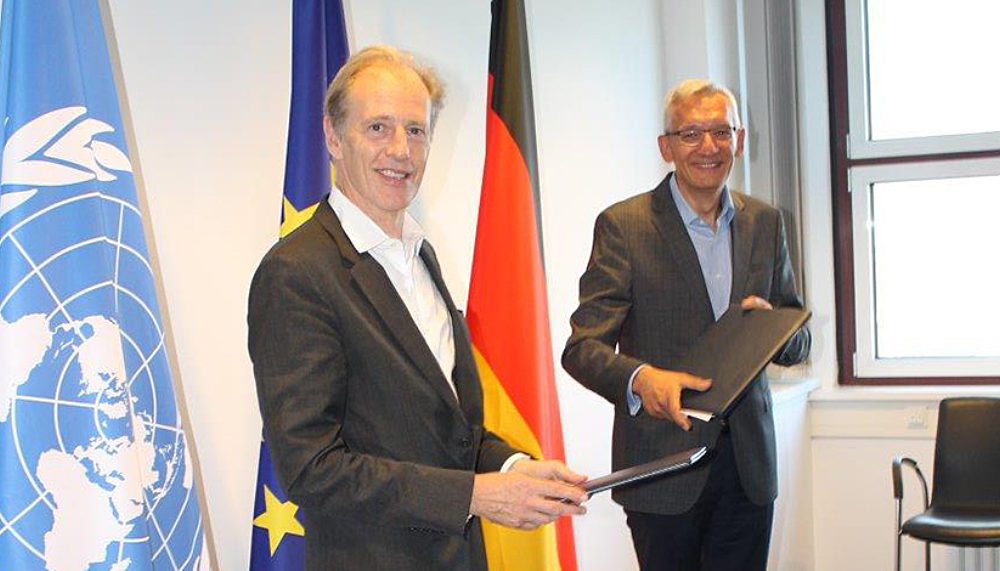PRESS RELEASE | 12 Aug 2021
New cooperation agreement to establish Transitional Justice Hub
BMZ, Berghof Foundation to deepen joint work on dealing with the past

The Hub will promote exchange, dialogue, and research on topics such as remembrance, good governance, trauma healing, and social cohesion in post-conflict settings.
In a ceremony in Berlin yesterday, the Federal Ministry for Economic Cooperation and Development (BMZ) and the Berghof Foundation signed a Memorandum of Understanding to intensify their cooperation on matters of transitional justice and reconciliation.
The agreement will see the development of a Transitional Justice Hub that serves as a learning and knowledge-sharing platform for governmental and non-governmental stakeholders, among them the Working Group on Peace and Development (AG FriEnt), researchers as well as policymakers, including a comprehensive exchange of ideas and experiences from the Global South. The Transitional Justice Hub will promote exchange, dialogue, and research on topics such as remembrance, good governance, psychosocial trauma healing, and social cohesion in post-conflict settings.
This deepened cooperation builds on the German government’s 2019 adoption of an Interministerial Strategy to support “Dealing with the Past and Reconciliation (Transitional Justice)”, and reflects the BMZ and Berghof’s shared view that transitional justice and reconciliation – measures which address, acknowledge and prosecute past injustices occurring during periods of authoritarian rule and violent conflict – is a key component of promoting sustainable peace.
Building on the inextricable link between peace and development, the BMZ and Berghof’s cooperation on the Transitional Justice Hub will contribute to the 2030 Agenda for Sustainable Development, in particular SDG 16.
At the signing yesterday, State Secretary Martin Jäger of the BMZ emphasised, ‘Looking back, at past injustices and earlier conflicts, simultaneously means looking ahead, with a view to creating a basis for sustainable, development-oriented policies for peace that go beyond the mere absence of war and violence. Given Germany’s ongoing, often painful internal debates about wounds from two former dictatorships, the TJ Hub might also offer a chance to explore how those discussions could provide insights on a global scale.’
Andrew Gilmour, Executive Director of the Berghof Foundation, added that, ‘As an organisation based in Germany, Berghof is particularly well placed to help share experiences with other countries on how to come to terms and deal with their own troubled past. This year is our 50th anniversary, and for much of the past half-century, we have worked on issues relating to historical narratives in many nations in conflict. The new cooperation between BMZ and Berghof will enable us to expand this on many levels, and our work on transitional justice and reconciliation, as well as that of our partners in this field, will greatly benefit as a result of BMZ’s generosity.’
Media contact
You can reach the press team at:
+49 (0) 177 7052758
email hidden; JavaScript is required


